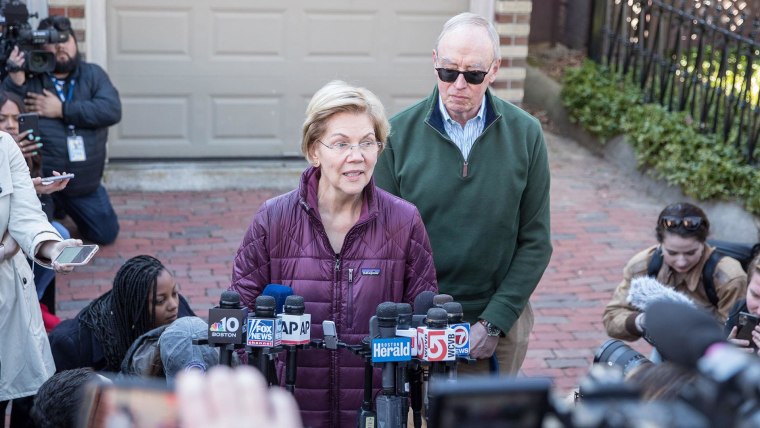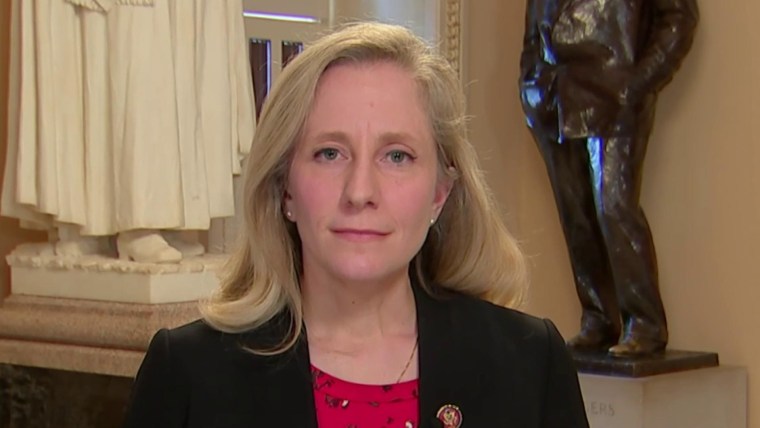In Washington, it once seemed reasonable to conclude that 2020 would be a good year for a woman to seek the Democratic nomination for president. For the party’s voters around the country, not so much.
Massachusetts Sen. Elizabeth Warren’s exit from the race Thursday left a party that emphasizes its diversity and fares better with women and younger voters staring at a nomination fight between two white men who are closer in age to 80 than 70.
It also revealed the extent to which many candidates and political operatives misread the mood of a Democratic electorate that has demonstrated in polling and countless interviews its collective fear that a woman, a person of color or a woman of color would be more likely than a white man to lose to President Donald Trump in November.
“Trump’s victory scarred many Democrats to the point where all that matters is electability — which is a problem when no one really knows what that means, and we still don’t fully understand or agree on why we lost last time,” said Rebecca Kirszner Katz, a Democratic strategist who works with progressive candidates.
Instead of being the year of the woman, 2020 turned out to be the year that Democrats effectively hung “no woman need apply” signs around their ballot boxes.
Of course, personal and political identity aren’t tantamount to candidate quality, and it may be that voters believed the finalists, former Vice President Joe Biden and Vermont Sen. Bernie Sanders, were simply the most capable contenders.
But it’s clear from the sentiments of the women who ran, many voters who spoke to reporters over the course of the campaign and professionals who study the attitudes of the electorate that the terrain for women and for candidates of color was tougher this year than many might have expected in the primary of a party whose most recent nominees have been a white woman and a black man.
“We have Trump for president, and that says a lot,” Shirley Ehlers, a retiree from Perry, Iowa, told NBC’s Lauren Egan at a Warren campaign event in April 2019. “That shows a disrespect in this country for women at a lot of different levels. I think we need to address that first before a woman can win.”
In June 2019, a USC Dornsife/Los Angeles Times poll found that two-thirds of Democratic primary voters thought a man had the best chance of beating Trump and two-thirds believed that a white candidate did.
Just six months earlier, as hopefuls were making final decisions about whether to run, the atmospherics for women candidates looked so hospitable from Washington that a record six women, including four sitting senators, would ultimately jump in.
Let our news meet your inbox. The news and stories that matters, delivered weekday mornings.
Hillary Clinton had won the 2016 Democratic nomination, more votes than President Donald Trump in that year’s general election and more votes than President Barack Obama did in the 2008 Democratic primaries. The trajectory for women candidates, particularly Democratic women, appeared to be upward, and backlash against Trump had helped fuel successful campaigns by women at the congressional and state levels in 2018 midterms.
But fear of Trump is the single most powerful motivator for Democrats right now. In 2016, his campaign featured misogynistic attacks on Clinton and a long list of other women, and he survived allegations — which he denied — of sexual assault and harassment, as well as revelations of sexist and sexually graphic comments he had made over the years.
Melissa K. Miller, a political science professor at Bowling Green State University in Ohio, said that voters may have misinterpreted past results in a way that could make it even harder for women candidates to succeed in the future.
“My concern is that not electing a woman president has become a self-fulfilling prophecy,” Miller said. “Folks are convinced that a woman can’t win, so they don’t vote for a woman, thus ensuring that a woman doesn’t win and the cycle continues. The reality is that a woman can win. Hillary Clinton’s victory by about three million popular votes in 2016 made that clear.”
One conundrum for women running for office is that remaining silent allows sexist attacks from a candidate, that candidate’s campaign or that candidate’s supporters to take root — while exposing them can have a tendency to make it sound like they are casting aspersions on the voters who back their rival.
Warren spoke about another aspect of the gender “trap” Thursday.
“Gender in this race, you know, that is the trap question for every woman,” she said. “If you say, yeah, there was sexism in this race, everyone says ‘whiner.’ And if you say, no, there was no sexism, about a bazillion women think, ‘what planet do you live on?'”
For months, Warren’s supporters worried that she was quietly absorbing the blows of subtle and not-so-subtle sexism from other campaigns and their supporters.
In Iowa in January, Biden seemed to embrace and amplify the fears of Democratic voters who believe sexism played a role in Hillary Clinton’s defeat in 2016, pointing to the edge a man would have against Trump on that score.
“I think there’s a lot of sexism in the way they went after Hillary,” he said. “I think it was unfair, an awful lot of it. Well, that’s not gonna happen with me.”
When Warren shined a spotlight on gender at a debate that month, noting that the men on stage had lost elections before and the women hadn’t — and alleged, against Sanders’ denial, that he had told her he believed a woman couldn’t win the presidency in 2020 — her poll numbers dropped.
It’s impossible to know whether the most consequential factor in Warren’s campaign was her chromosome set, but few would contend that it provided her an advantage with voters or in the media coverage of her campaign.
“I think that that we all know, and this election cycle in particular has also presented very legitimate questions, about the challenges of women running for President of the United States,” Sen. Kamala Harris, D-Calif., said Thursday after Warren announced her exit.
Harris, one of four black candidates to run, was initially considered a leading contender for the nomination. But her campaign fizzled following a debate-stage dust-up with Biden over his long-ago efforts to stop federal courts from implementing busing plans to integrate schools and her failure to explain what she would do differently now. She dropped out before the Iowa caucuses.
“Look at what’s happened. There are no women currently in this race, and I, you know, we can have a longer discussion about it, but the reality is that there’s still a lot of work to be done to make it very clear that women are exceptionally qualified and capable of being the commander in chief of the United States of America,” she said. “And in this race, from Elizabeth Warren to [Sen.] Amy Klobuchar [D-Minn.] to [Sen.] Kirsten Gillibrand [D-N.Y.], we had extraordinary leaders who have a proven track record of leadership in local government and state government.”
Even Harris neglected to mention that there is still a woman in the race: Hawaii Rep. Tulsi Gabbard, D-Hawaii, who registered the only top-two finish by a woman in any contest when she placed second in American Samoa’s primary on Super Tuesday. Along with Gabbard, Harris, Gillibrand, Warren and Klobuchar, the author Marianne Williamson also ran.
Like Clinton, who addressed campaign-trail sexism in her post-election memoir “What Happened,” Warren said Thursday she’s not done talking about the topic.
“I promise you this,” she said. “I will have a lot more to say on that subject later on.”













